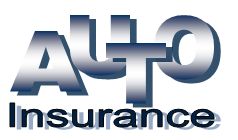Why does my insurance cost more than my agent said it would? Is that legal?
Answer:
It turns out that consumers have a tendency to down play the number of accidents and violations they have had and aren't good at remembering dates. Since, the companies use this information to calculate insurance premiums, there is often an increase in the actual rate based on the "actual" information.
If you believe the increase is not justified, you can simply refuse the final rate and continue to shop other companies. By the way, consumers tend to find the best savings by comparing a minimum of 5 insurance companies before making a commitment.
 It is legal. The agent’s premium is not final. The agent is often providing a "Quote" based on plugging the information that the consumer provides into a quoting system without verifying "accident & violation" information, credit score, and "claims" data. It’s the insurance company’s underwriters who make the final determination of the rate after evaluating all available information including: DMV, Claims and Credit Score to finalize the insurance premium.
It is legal. The agent’s premium is not final. The agent is often providing a "Quote" based on plugging the information that the consumer provides into a quoting system without verifying "accident & violation" information, credit score, and "claims" data. It’s the insurance company’s underwriters who make the final determination of the rate after evaluating all available information including: DMV, Claims and Credit Score to finalize the insurance premium.
 This is called a misquote. Determining your premium depends on many factors:
This is called a misquote. Determining your premium depends on many factors:
-Age
-Gender
-Marital Status
-Geography, Territory
-Driving Violations, Driving Record
-Vehicle Type
-Vehicle Make, Model, and Style
-Accident Claims
-Prior Insurance Coverage
-Credit Rating
-Occupation
-Education
-Years of driving experience
-Business use of the vehicle
-Whether or not you currently have auto insurance and how high are your limits
-Theft protection devices (often results in discounts)
-Multiple cars and drivers (another opportunity for discounts)
-Coverage and limits
If an error is made in reporting any of these facts, your rates won't be quoted correctly. Misquotes can also happen if your agent makes a mistake in applying the company's rating system. Auto insurance misquotes can happen when your application information differs from your actual driving record.
Companies ask states' motor-vehicle divisions to verify the records of drivers they insure. If you told your insurance agent you have a perfect driving record, and you don't, your insurance company will charge higher premiums than your agent quotes.
To avoid misquotes, provide accurate information about your driving record and any other facts affecting the cost of insurance, such as the make of your car or how far you commute to work. Verify all information before signing the application.
